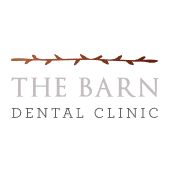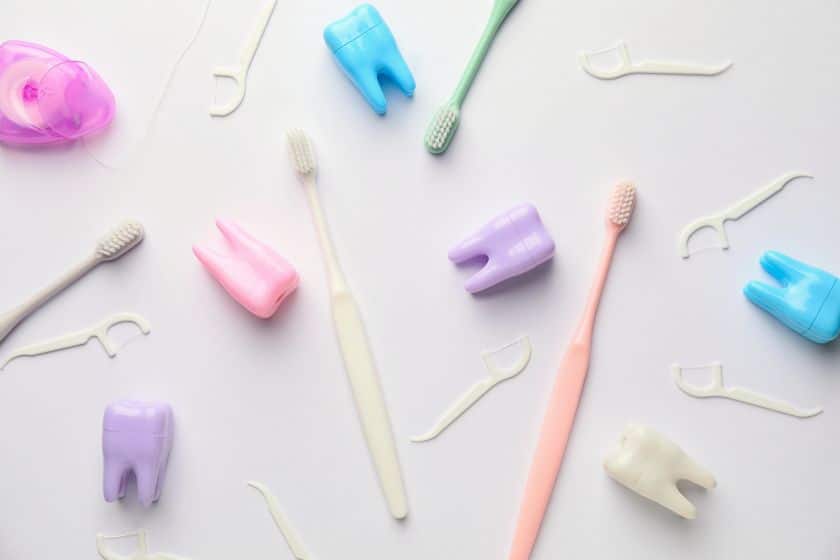Taking care of your teeth isn’t just about achieving a beautiful smile – it’s about protecting your overall health. Dental hygiene plays a vital role in your overall well-being, and by following a few simple steps, you can ensure that your smile remains bright and your mouth stays healthy for years to come. If you’ve been struggling with your oral care routine or haven’t seen your dentist in a while, now is the perfect time to take action and improve your dental hygiene. Here are five easy ways to get started on the path to a healthier smile.
1. Brush Your Teeth Properly – Twice a Day
Brushing your teeth might seem like an obvious tip, but many people overlook the importance of doing it correctly. Brushing your teeth isn’t just about picking up your toothbrush and scrubbing – it’s about technique. The British Dental Association (BDA) recommends brushing for at least two minutes, twice a day. Not brushing for long enough or brushing too aggressively can miss areas and cause damage to your gums.
Here’s how you can brush your teeth effectively:
- Use a fluoride toothpaste: Fluoride helps prevent cavities and strengthens enamel, providing extra protection for your teeth.
- Brush at a 45-degree angle: Place your toothbrush against your gums at a 45-degree angle and move it gently in circular motions. This helps remove plaque and food particles without damaging your gums.
- Don’t forget your tongue: Your tongue harbours bacteria that can contribute to bad breath. Use your toothbrush to gently clean your tongue every time you brush.
Brushing your teeth for two minutes, twice daily, and using the proper technique ensures you’re giving your teeth the attention they deserve.
2. Floss Regularly to Reach the Hard-to-Get Areas
Flossing is often one of the most neglected aspects of oral hygiene, but it’s just as important as brushing. Toothbrushes can’t reach the tiny spaces between your teeth, which is why flossing is essential for removing plaque and preventing cavities. By flossing once a day, you’ll remove food particles and plaque that may have built up between your teeth and under the gum line.
Here’s how to floss properly:
- Use a fresh piece of floss: Make sure you use a new section of floss for each tooth to avoid spreading bacteria.
- Don’t snap the floss: Gently slide the floss between your teeth, curving it around each tooth to clean under the gumline.
- Be thorough: Don’t just focus on the visible areas – make sure you floss both sides of each tooth to remove plaque completely.
If you find traditional floss difficult to handle, there are plenty of alternatives such as floss picks or water flossers, which can also get the job done effectively.
3. Rinse with Mouthwash for Extra Protection
While brushing and flossing are the foundations of good oral hygiene, mouthwash can provide an additional layer of protection against bacteria. Rinsing with a fluoride mouthwash can help reduce plaque, prevent gingivitis, and combat bad breath. It’s the perfect way to round off your oral care routine.
Choose a mouthwash that suits your needs:
- For cavity protection: Choose a fluoride mouthwash that helps to strengthen enamel and prevent cavities.
- For fresh breath: Mouthwashes with antibacterial properties can help kill the bacteria that cause bad breath.
- For gum health: If you’re concerned about gum issues, look for a mouthwash designed to help reduce plaque and promote healthy gums.
Rinse for about 30 seconds to a minute after brushing and flossing to make sure your mouth stays fresh and free of harmful bacteria.
4. Eat a Tooth-Friendly Diet
Your diet plays a significant role in the health of your teeth. What you eat can either contribute to or prevent dental problems, such as cavities, gum disease, and enamel erosion. A balanced diet rich in nutrients will give your teeth the best chance of staying strong and healthy.
Here are some tips for a tooth-friendly diet:
- Limit sugary foods and drinks: Sugar feeds harmful bacteria in your mouth, which can lead to plaque build-up and cavities. If you do indulge in sugary treats, make sure to brush your teeth afterward to minimise the damage.
- Eat plenty of fruits and vegetables: Crunchy vegetables like carrots and celery are excellent for cleaning your teeth and gums as you chew. Plus, they’re full of vitamins that help keep your gums healthy.
- Drink plenty of water: Water helps to rinse away food particles and bacteria in your mouth. Drinking water after meals can also help neutralise acids that might harm your teeth.
- Eat calcium-rich foods: Dairy products like milk, cheese, and yogurt help strengthen your teeth by providing the calcium needed for strong enamel.
By making small changes to your diet, you can significantly reduce the risk of tooth decay and other dental issues.
5. Visit Your Dentist Regularly
No matter how well you take care of your teeth at home, regular professional check-ups are essential. Dentists can spot potential problems before they become serious, such as cavities, gum disease, and early signs of oral cancer. Regular visits to the dentist ensure that your teeth and gums are thoroughly cleaned, removing tartar that you can’t get rid of with brushing and flossing alone.
The British Dental Association recommends seeing your dentist at least once a year, though more frequent visits may be necessary depending on your dental health. During your visit, your dentist will:
- Check for cavities, gum disease, and other dental issues: Early detection allows for more effective treatment and prevents further damage.
- Clean your teeth: A professional cleaning removes plaque and tartar, helping to keep your teeth and gums healthy.
- Offer advice and treatments: Your dentist can provide personalised tips and treatments to improve your dental hygiene and help maintain your smile.
By committing to regular dental visits, you’ll ensure that your teeth remain in top condition and catch any potential issues early.
Conclusion: Small Efforts Lead to Big Results
Improving your dental hygiene doesn’t have to be complicated or time-consuming. By brushing properly twice a day, flossing regularly, using mouthwash, maintaining a tooth-friendly diet, and visiting your dentist, you can enjoy a healthier smile that lasts a lifetime.
Remember, dental hygiene isn’t just about having a pretty smile – it’s about taking care of your overall health. Poor oral hygiene can lead to serious health problems, including heart disease, diabetes, and respiratory issues. By taking a few simple steps each day, you can avoid these risks and keep your mouth and body in top shape.
Don’t wait – start implementing these tips today and see the difference a little effort can make for your smile. Your teeth will thank you!
If you need extra help, call 01722 414285 or click here to book a free discovery visit!
Other Free Dental Advice
Read Our Blog – How Does SureSmile Work? Explaining The Process
Read Our Blog – How Can I Get Straight Teeth and Reclaim My Confidence?
Follow us on Social Media:
Facebook – The Barn Dental Clinic
Instagram – The Barn Dental Clinic


